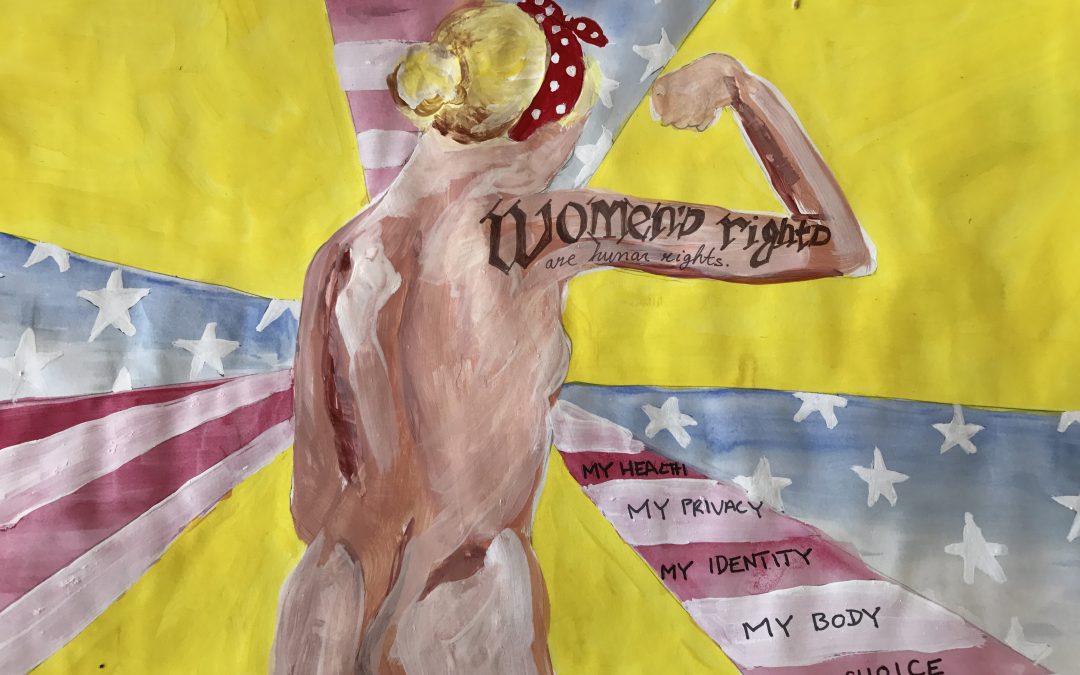According to the Universal Declaration of Human Rights, all people have the same fundamental human rights. To name just a few, these rights include the right to life and liberty, the right to education, the right to employment, the right to community, and the right to a healthy standard of living, including the necessary social services and security in the event of sickness or disability.
While there are many marginalized groups whose human rights are often ignored or stripped away by the very systems that are meant to uphold them, those living with mental illness are “among the most abused and discriminated against in our country,” according to Mental Health America.
This is an issue that affects a lot of people; according to Mental Health America, half of all Americans will experience a diagnosable mental health condition in their lifetime. Those of us who do not experience this firsthand will likely have a loved one who has experienced a mental illness.
Here are three laws relating to mental health that you should know about in order to protect yourself or your loved ones living with mental illness.
Americans with Disabilities Act (ADA)
The Americans with Disabilities Act of 1990, commonly referred to as the ADA, is a civil rights law that prohibits discrimination based on disability. The ADA prohibits discrimination against individuals with disabilities in all areas of public life, including jobs, schools, transportation, and all public and private places.
The ADA includes individuals with mental health diagnoses in their definition of disability and prohibits discrimination against individuals who have or are regarded as having a psychiatric disability.
According to the ADA National Network, individuals with psychiatric disabilities have two main rights under the ADA:
- The right to privacy: Except when asking for an accommodation, individuals can choose if they want to tell their employer about their disability.
- The right to reasonable accommodation: Unless the accommodation causes “undue hardship” for the employer, the employer must provide reasonable accommodations for employees with physical or mental disabilities.
Olmstead Rights: The Right to Community Integration
“Olmstead Rights” arose from a U.S. Supreme Court decision in 1999 based on the ADA. The lawsuit, Olmstead v. L.C., was filed on behalf of two women in Georgia named Elaine Wilson and Lois Curtis, both of whom had mental health and developmental disabilities and were voluntarily admitted to the psychiatric ward of a hospital because the proper mental health support was not available within their communities.
The Supreme Court found that it went against the ADA to discriminate against a person by requiring them to live in a psychiatric hospital. The court sided with the two women and held that people with disabilities, including mental health disabilities, have a right to receive state-funded supports and services in the community rather than in institutions.
Fair Housing Act
The federal Fair Housing Act of 1968 prohibited discrimination against a person based on race, color, religion, sex, or national origin, and was amended in 1988 to include people with physical and mental disabilities. Under the Fair Housing Act, landlords and housing providers are required to make reasonable accommodations in rules, policies, and procedures to allow a person with a disability to be able to use their dwelling with the same ease and access as individuals without disabilities.
Some examples of reasonable accommodations for tenants with a mental health disability, per Mobilization for Justice, are:
-
“A tenant’s mental illness makes it difficult for her to handle everyday stress and anxiety. Keeping a cat helps her to stay calm and happy. Even though her lease has a “no pets” clause, her landlord may be required to let her keep her cat as a reasonable accommodation for her disability.”
-
“Because of her mental illness, a tenant sometimes becomes very loud and confrontational with her neighbors. Her landlord is trying to evict her because of these confrontations. As a reasonable accommodation, the landlord may be required to accept the tenant’s promise to start treatment and to stop arguing with her neighbors.”
-
“A tenant installs a freezer in her apartment even though her landlord says she can not. She installs the freezer because she suffers from a panic disorder that stops her from leaving her house and requires her to store food for long periods of time. The landlord may be required to let her keep the freezer as a reasonable accommodation of her panic disorder.”
For further reading on mental health rights, take a look at the following resources:
https://www.mhanational.org/issues/mental-health-rights
https://www.un.org/en/universal-declaration-human-rights/
https://www.olmsteadrights.org/about-olmstead/
https://homelesshub.ca/sites/default/files/HousingSeries_Accomodations.pdf


